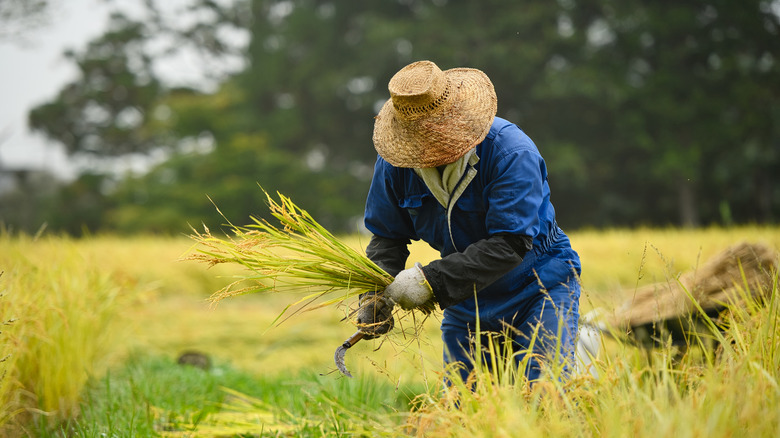New Study From China Reveals Declining Interest In Farming
"In the slant of the sun on the country-side / Cattle and sheep trail home along the lane / And the farmers, returning with hoes on their shoulders / Hail one another familiarly / No wonder I long for the simple life / And am singing the old song, Oh, to go Back Again!"
This is an excerpt from "A Farmhouse on the Wei River" by legendary Chinese poet Wang Wei. But, if you've ever had the pleasure of breathing deeply in a cornfield, the scene might feel like a familiar, fond memory. Wei was born way back in 699, but agriculture has remained a key player in Chinese culture since. In "Origins of Agriculture," Tracey L-D Lu says some scholars speculate that global agriculture started in China before expanding westward, via Oxford Bibliographies. Lu even lauds agriculture as an integral part of Chinese culture since its origination: "Agriculture has been the foundation of Chinese civilization for thousands of years... and it has induced significant cultural changes."
But, a new study led by Danfeng Liao of the China Association of Agricultural Science Societies has found that younger generations might not share the same interest in agriculture as their predecessors. This nationwide study sought to identify the reason why public interest in agriculture has waned -– and, hopefully, how to remedy whatever that reason may be.
Younger generations prefer farming theory to practice
In the study, 2,586 surveys were collected from 242 cities and 31 provinces across mainland China to gauge public interest in farming, via academic journal Science of Food. The results are in, and it turns out young folks aren't totally disinterested in farming as a whole –- they're just interested in less traditional aspects of it. As opposed to physically baling hay, tracking crop growth patterns, or raising livestock, the future farmers are more intrigued by "consumer perspective in food safety, nutrition and health, food security and agricultural history." In short, farming theory has become more popular than traditional farming itself.
This shift might be due in part to the popularity of education. The study found that participants who were younger in age or had college degrees were less likely to report interest in traditional agriculture, and that these groups were also more likely to move to urban areas. According to data analytics platform Statista, in 2021, 44.3 million Chinese students were enrolled in higher education for a gross enrollment rate of 57.8%. This is making major waves in the country's economic trends. In 2020, says the study, agriculture accounted for only 8% of China's gross domestic product (GDP), while the country's urbanization increased by 60% in 2019 — and the shift isn't just happening in China, either.
Results say younger people favor administrative roles over physical ones
Rural youth around the world are losing interest in hands-on farming. The United Nations reports that young people in Africa are leaving small farms by the trove due to increased access to education, lack of financial credit, and negative perceptions of farming as a lifestyle. But, according to Moses Abukari, the International Fund for Agricultural Development (IFAD)'s Country Program Manager and Youth Focal Point for West and Central Africa, any nostalgic elitism around traditional farming versus farming theory should be avoided. The younger generation's interest in farming theory, Abukari maintains, might be the answer to preserving the agriculture industry and should be encouraged. "Young people have many innovative ideas but are often excluded from planning and policy processes relating to the future of rural areas," says Abukari, via the United Nations.
As climate change affects crops more and more (The Union of Concerned Scientists warns that farming communities around the world will continue to face significant climate-related challenges), a deeper understanding of farming practices could prove more important than ever. Plus, amidst the current global food shortage, having a generation of young people interested in working toward sustaining food security could make a huge difference.
The future is now, and even a centuries-old, fundamentally important practice like farming might be able to benefit from a new perspective.


